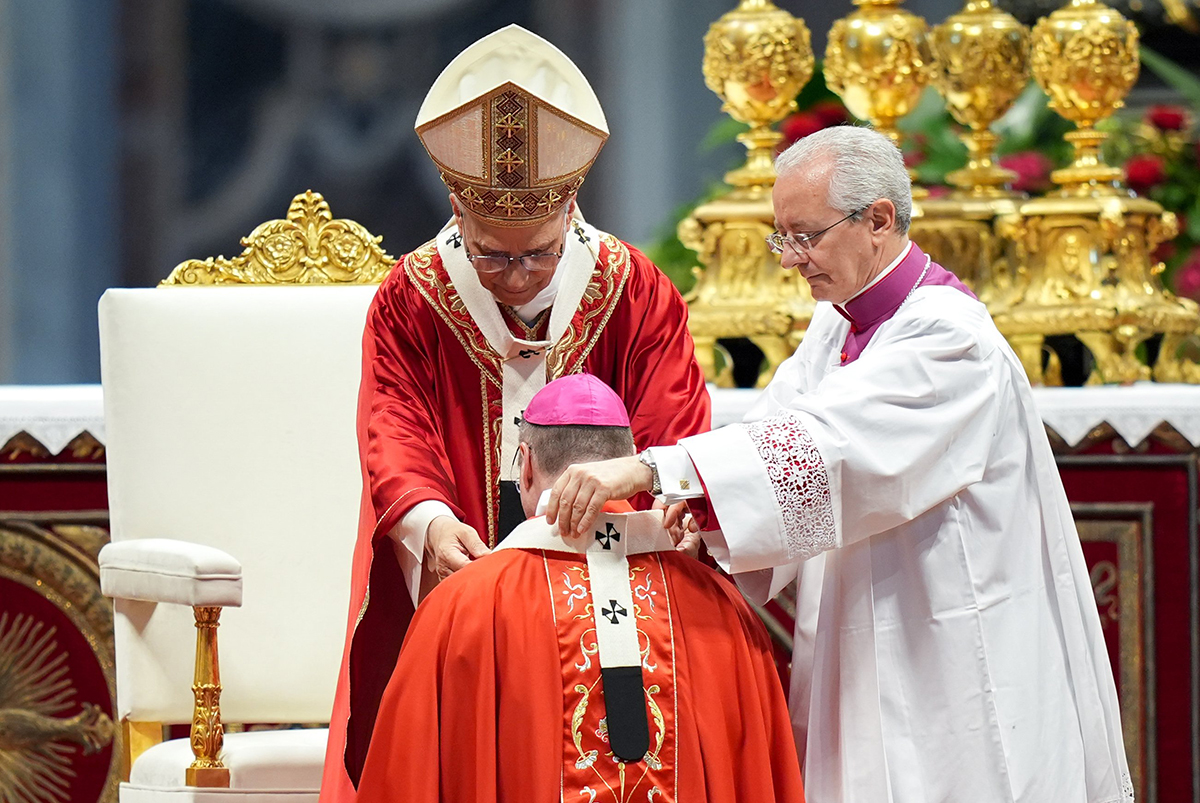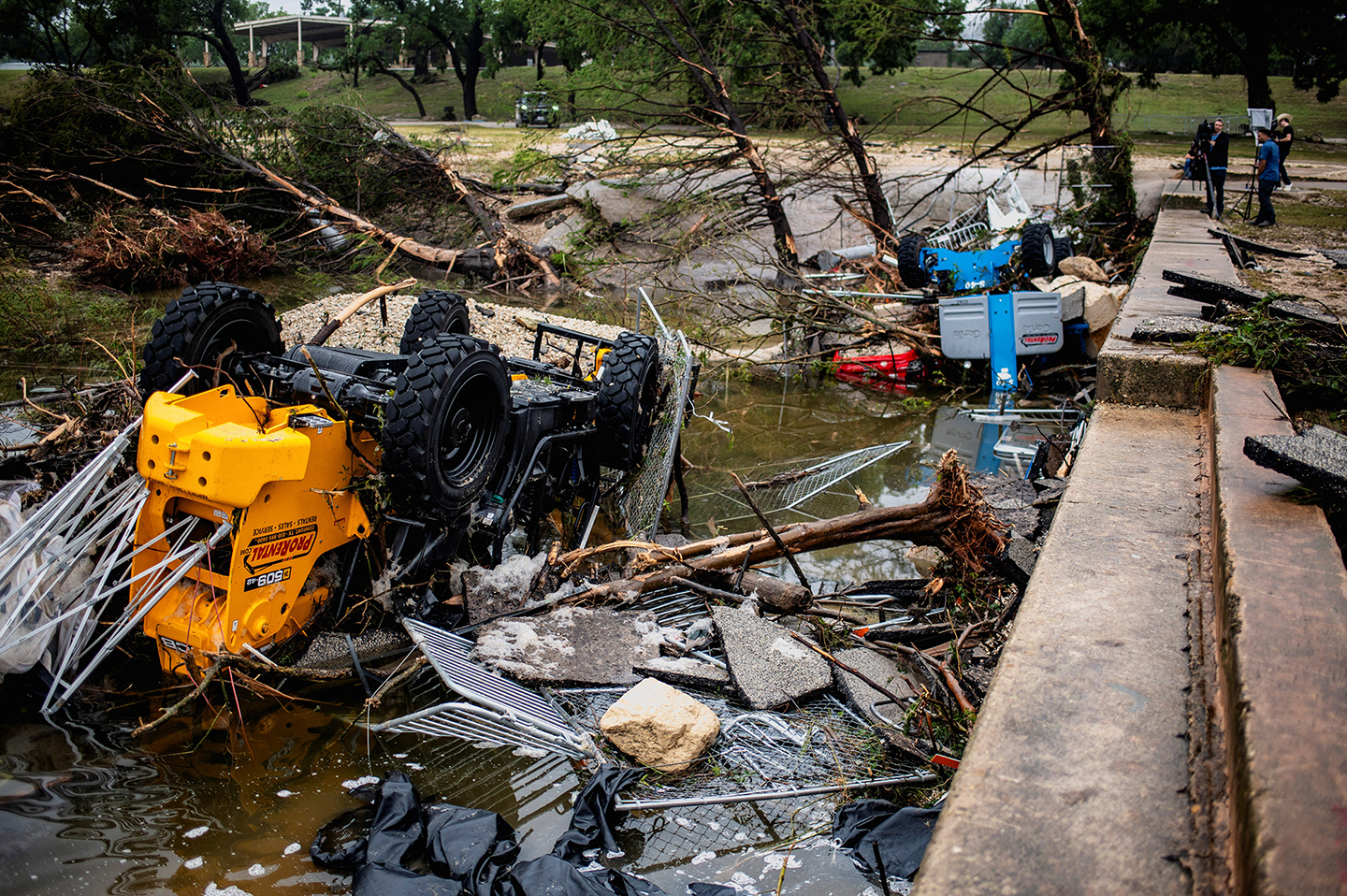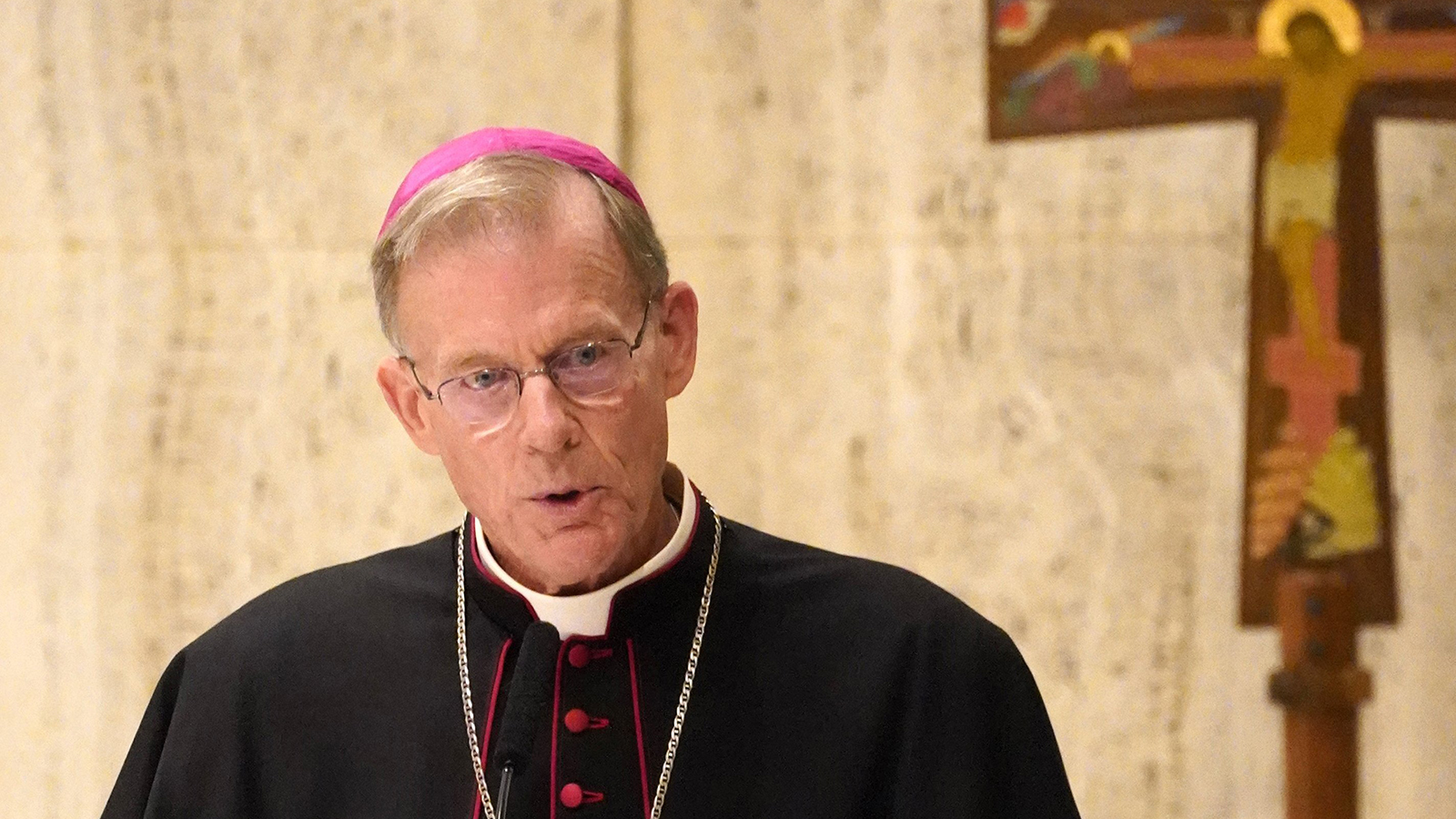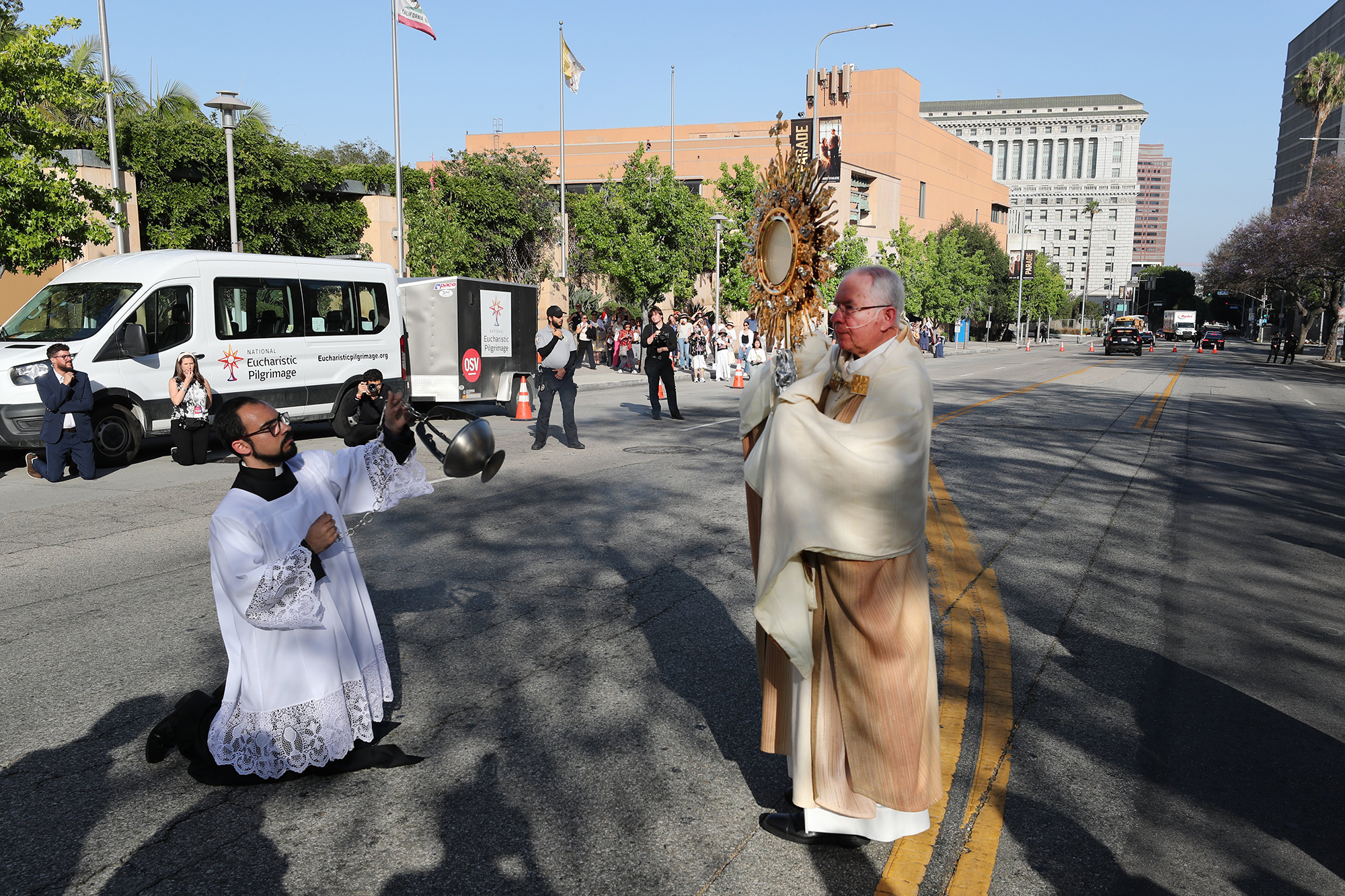Pope calls escalation of conflict in Middle East ‘unacceptable’
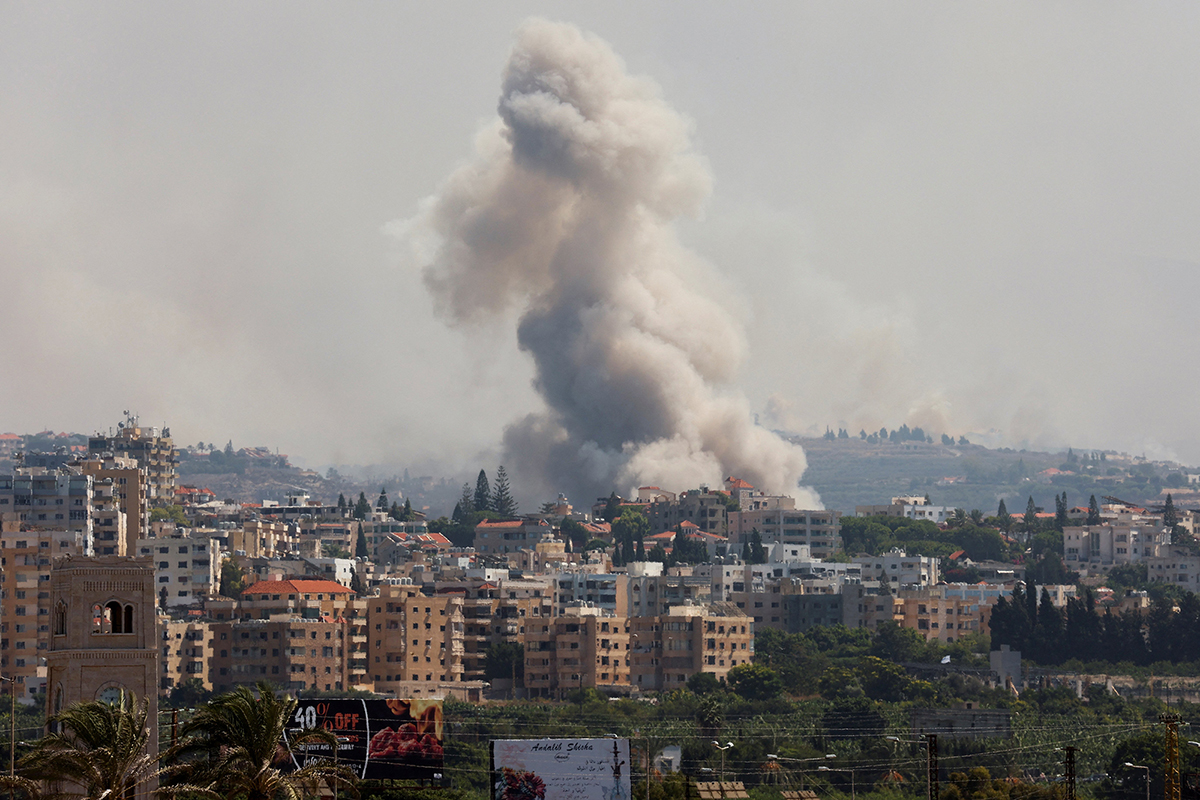
Israel and Hezbollah exchanged increased airstrikes, with hundreds killed in Lebanon
VATICAN CITY — Pope Francis called the escalation of the conflict in the Middle East “unacceptable,” after Israel and Hezbollah exchanged increased airstrikes, with Israeli missiles killing hundreds in Lebanon.
“I am saddened by the news from Lebanon, where in recent days the intense bombings have claimed many victims and caused destruction,” the pope said at the end of his general audience Sept. 25. “I hope that the international community will make every effort to stop this terrible escalation. It is unacceptable.”
Fighting on the Israeli-Lebanon border escalated Sept. 21 when Israeli forces launched a campaign of airstrikes against Hezbollah, an Islamist militant group based in Lebanon. As of Sept. 25, more than 550 people had been killed in the bombings including 50 children, according to Lebanon’s health ministry.
The Israeli military said Sept. 25 it had intercepted and shot down a Hezbollah missile fired at Tel Aviv from Lebanon — the group’s farthest-reaching attack in its conflict with Israel. Hezbollah had previously fired several missiles at other targets in northern Israel, but many were intercepted, and no injuries have been reported.
“I express my closeness to the Lebanese people, who have already suffered too much in the recent past,” Pope Francis said at his audience. “And let us pray for everyone, for all the peoples who suffer as a result of war: let us not forget tormented Ukraine, Myanmar, Palestine, Israel, Sudan, all the suffering peoples. Let us pray for peace.”
Egypt, Jordan and Iraq accused Israel of “pushing the region toward a comprehensive war” in a joint statement issued Sept. 24 by the nations’ foreign ministers, who were together attending the U.N. General Assembly in New York.
Caritas Lebanon said Sept. 25 that 21,000 people have been forced to flee their homes in pursuit of safety in the previous 24 hours. The organization is providing shelter, food, medical care and psychological support to the displaced.
Abdallah Bou Habib, Lebanon’s foreign minister, said some 500,000 people had been displaced since the surge in Israeli strikes.
Maronite Patriarch Cardinal Bechara Rai expressed “profound sorrow” over the “devastating toll” of Israeli airstrikes on Lebanon, the country’s state news agency NNA reported Sept. 22.
In his Sunday homily Sept. 22, he said the “unprecedented” attacks are “devoid of humanity.”
NNA reported that Cardinal Rai called on the United Nations Security Council to intervene and “put an end to the ongoing conflict.”
“In war, everyone is a loser; the only winners are arms dealers,” the patriarch said.
During his homily, Cardinal Rai expressed “deep concern” about Lebanon’s shifting political landscape, noting that the nation has moved from a state of “unique pluralism” to one characterized by “singularity and division,” according to the NNA news agency. He warned that this troubling trend can only be reversed when the Lebanese people embrace a “new path forward,” one that fosters hope and lays the groundwork for “a new historical narrative.”
He urged Lebanese politicians to establish “a stable and independent Lebanese state, capable of overcoming internal divisions and healing the scars of war.”
He stated that this goal “can only be achieved through the election of a president who will restore legislative powers to Parliament and uphold the constitutional authority of the Council of Ministers,” NNA reported Sept. 22.
“No one wants the conflict to escalate,” said Maronite Archbishop Charbel Abdallah of Tyre, the major city in the south of Lebanon.
According to a Sept. 20 Vatican News report, the archbishop recalled “the fragile situation” of the local population and the devastating war in 2006 between the Israeli army and Hezbollah. But he emphasized that despite the fighting, “prayer remains at the heart of the Christian communities that have stayed in the region.”
Stop wars ‘while there is still time,’ pope says
By Cindy Wooden | Catholic News Service
VATICAN CITY — Wars are destroying the world, and religious leaders must join together to urge their governments to “stop while there is still time,” Pope Francis said.
“If others continue to make war, together we can work for peace,” the pope said in a message Sept. 24 to religious leaders gathered in Paris for the closing ceremony of the international “Imagining Peace” meeting organized by the Community of Sant’Egidio.
The Sant’Egidio Community has sponsored an interreligious meeting for peace each year since St. John Paul II held the first in Assisi, Italy, in 1986.
Pope Francis quoted his predecessor’s final talk that day, which highlighted “the intrinsic link between an authentic religious attitude and the great good of peace.”
Gestures of peace and friendship between followers of different religious “shatter the fatal chains of divisions inherited from history or spawned by modern ideologies,” St. John Paul said.
Pope Francis prayed that the meeting in Paris would help “all believers to rediscover their vocation to nurture fraternity between peoples in our time. All too often in the past, religions were used to fuel conflicts and wars. The danger of this continues, even in our own day.”
“Woe to those who try to drag God into taking sides in wars!” Pope Francis said.
Religious leaders and believers of all faiths need to meet, “to weave bonds of fraternity and to allow ourselves to be guided by the divine inspiration present in every faith in order to join in ‘imagining peace’ among all peoples,” he said.
“In a world at risk of being fragmented by conflicts and wars,” he said, “the efforts made by believers are invaluable for holding out visions of peace and fostering fraternity and peace among peoples everywhere.”


